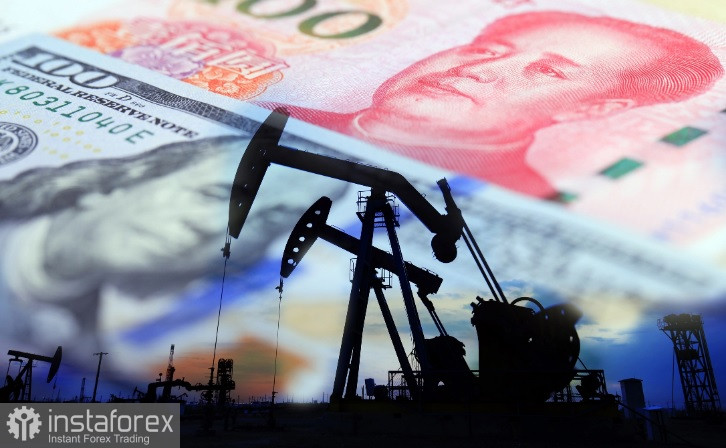
Gold will be a deciding factor for China as the country seeks to bolster the yuan's international standing and continues to advance its plans to buy oil from Saudi Arabia.
In early December, during a visit to Saudi Arabia, Chinese President Xi Jinping urged the leaders of the largest oil-exporting country to accept the yuan for oil as the two countries seek to strengthen their geopolitical ties.
Saudi Crown Prince Mohammed bin Salman called the talks a "historic new phase in relations with China."
If Saudi Arabia starts trading oil in yuan, this will create additional incentive for the Chinese currency, bringing it one step closer to reaching critical mass at the international level.
Gold is a key factor in the further development of the petro-yuan system.
A gold-backed petro-yuan does not require full renminbi convertibility to function, so it allows China to both maintain control of its capital account and stimulate the internationalization of the yuan.
Support for oil trading in yuan with gold will play an important role in building the petro-yuan system.
The convertibility of the yuan into gold effectively turns the currency into a global investment asset for foreign renminbi holders, increasing their confidence in and demand for the Chinese currency.
Last December, China bought 30 tonnes of gold. A month before, they have already purchased about 32 tonnes. This was the first officially registered purchase since September 2019. China's gold reserves currently stand at 2,010 tonnes.
Analysts at the French bank said China has already made strategic progress in global currency markets as it seeks to weaken the U.S. dollar's position as the world's reserve currency.
They noted that because of Western economic sanctions, primarily from the U.S., Russia has adopted China's CIPS (Cross-Border Interbank Payment System) for its oil transactions, bypassing the global payment system SWIFT (Society for Worldwide Interbank Financial Telecommunication), which is dominated by the U.S. dollar.
Countries such as Iran, Venezuela and Indonesia currently settle some of their oil transactions in yuan.
The volume of trade and the ability to use the yuan for international payments may grow as more countries diversify to avoid the risk associated with the U.S. dollar. This event may eventually challenge the U.S. dollar-based global financial system, as the dollar's status and importance is largely based on energy and commodity markets.
 English
English 
 Русский
Русский Bahasa Indonesia
Bahasa Indonesia Bahasa Malay
Bahasa Malay ไทย
ไทย Español
Español Deutsch
Deutsch Български
Български Français
Français Tiếng Việt
Tiếng Việt 中文
中文 বাংলা
বাংলা हिन्दी
हिन्दी Čeština
Čeština Українська
Українська Română
Română

